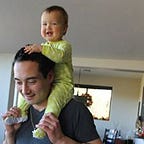The Zealot
“Doubt is an uneasy and dissatisfied state from which we struggle to free ourselves and pass into the state of belief; while the latter is a calm and satisfactory state which we do not wish to avoid, or to change to a belief in anything else.”
Over 140 years ago, Charles Sanders Peirce wrote this in “The Fixation of Belief.” Doubt is uncomfortable so human beings will do foolish, irrational things in order to believe what they believe. Peirce’s claims about belief are durable.
Our brains are hardwired to do so. Our reasoning capacities evolved so we could survive and reproduce, not so that we could discover truth in a deep ontological sense.
This explains why our cognitive biases stand so firmly in favor of fixing (wrong) belief despite all evidence to the contrary. And it is much easier to accept our tribe’s laundry list of pre-packaged “thoughts,” than it is to think.
Life is paradoxical, confusing, contradictory and frightening. Without belief, we cannot act. It is only natural that we cling to belief, white knuckled and indignant.
We hold to our beliefs as if letting go of them is like losing a limb. We believe our beliefs are so different and matter so much. Yet, they don’t matter in any ways that matter.
How many social justice warriors cry out in self-righteous indignation while cheating on their spouses and neglecting their children?
How many priests molest children captive under the threats of eternal fire and brimstone?
How many criminals and liars populate our political and court systems while thugs in police uniforms lurk in our streets?
How many virtue signaling Hollywood “progressives” are raping aspiring entertainers as you read this?
How many people have lost friends and family over political “affiliations,” but could never describe with any detail the real implications of their party’s policy positions?
We drive the same cars on the same roads to the same jobs. We eat the same food from the same “farms.” And we’re all so equally horrible to one another.
I am far from immune. I spent two years as a zen hippy reciting the bodhisattva vows uneasy with my own hypocrisy. I was proud of my intermittent Veganism while eating blood bananas, my ears ringing with the words of General Smedley Butler.
Over the years, I’ve managed to remove more and more of my most feverishly held beliefs. The ones I’ve held most passionately, in retrospect, feel the most silly now. Still, I fancy myself a man of honor and compassion, but I regularly fight back the burning urge to punch people in their faces.
Peirce outlined four basic methods of fixing belief: tenacity, authority, a priori, and the scientific method. All are capable of fixing a belief in the mind, but of these, Peirce concludes that scientific inquiry is best.
Like all babbling apes, I have my cherished dogmas. In light of my epistemological limitations and taking to heart Peirce’s advice, I now kneel at the altars of Critical Thinking, the Scientific Attitude, Fallibilism, and The Warrior Path.
“Critical Thinking” and the “Scientific Attitude” are plain enough. Others have written about them far better than I can. I aspire to hold belief in proportion to the evidence. Sometimes I succeed.
“Fallibilism” is the view that nothing is provable with absolute certainty. To be clear, I believe in reality and truth independent of mind. I assert very little about the “ultimate nature of reality.” Fallibilism is an acceptance of the fundamental limitations on our ability to know anything. This is not a position about reality but about the human mind. Any knowledge is provisional and may be false in the long run. Nevertheless, we can be justified in holding belief if attained through reliable means with sufficient evidence.
“The Warrior Path” is the disciplined pursuit, mentally and physically, to emulate the warrior archetype for the protection of one’s community and society.
But it is frightening and uneasy to accept doubt as a baseline. The antidote is to cultivate strength, courage, love and compassion. Our most cherished beliefs are not important. How we live in the world and the methods we use to form belief are what matter most.
